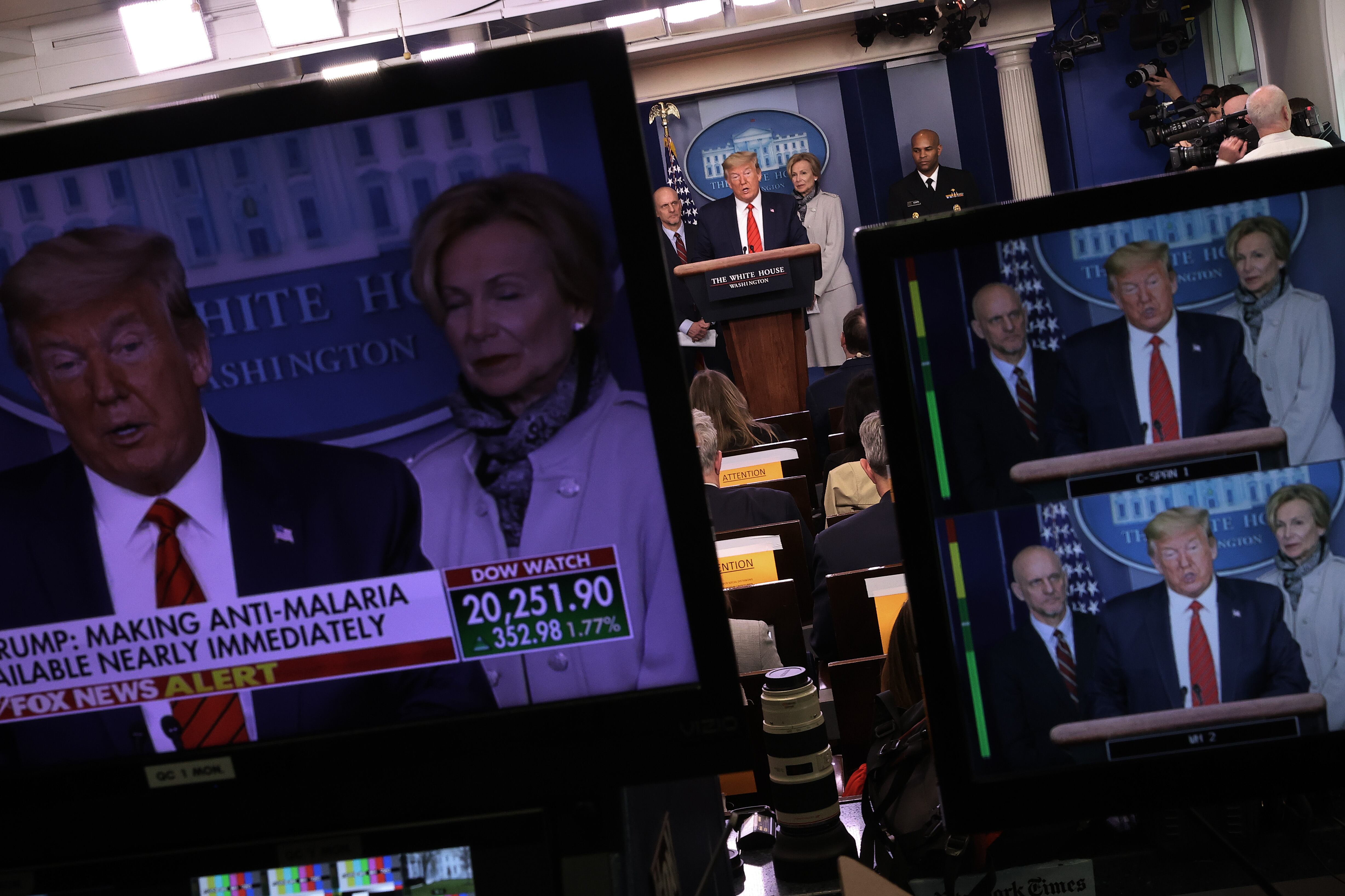This is one in a series of articles aimed at helping people manage anxiety during this crisis.
The effects of the coronavirus seem to worsen by the hour — especially if you follow the news by the hour.
If you've sensed your anxiety growing as your time at home, and time spent consuming news has grown, there is a correlation.
"Turn off the media. Stop watching," said E. Alison Holman, an associate professor at the University of California, Irvine's Sue & Bill Gross School of Nursing. "This is my research. Media exposure will heighten your anxiety."
Holman holds a doctorate degree in health psychology and has focused on studying trauma-related health problems.
"Stay informed — yes — it's important. Know what's going on but don't overdo the media," she said. "If you're feeling particularly anxious, do something to distract yourself if you can."
A Gallup poll from early March found that a majority of Americans disapprove of the way the news media has responded to the coronavirus (55 percent) — higher than the disapproval ratings for Congress (37 percent) and President Trump (38 percent) in the way they've handled the pandemic.
However, the data did show a partisan lean, with a majority of Democrats saying they approve of the media's job (61 percent) compared to Republicans (25 percent).
Regardless of whether you think the media is doing a good job or not, the technology that has enabled the spread of information to cover the spread of the novel coronavirus is unlike that of any other epidemic before this.
"This is an unprecedented social disruption in all of history because while we have had pandemics before, we've never had one televised live 24/7," said Dana Rose Garfin, also a professor at the Sue & Bill Gross School of Nursing. "We're experiencing this in our own lives and we're simultaneously experiencing what everyone else is experiencing … at multiple levels."
The top layer, Garfin says, is that "we're all experiencing what's happening via the media."
Because this crisis is so unique, is changing so fast, and does have a direct impact on so many aspects of life, there is a tendency to tune into the news to feel informed and to feel in control.
Unfortunately it can have the opposite effect.
"People are engaging in high-level information seeking to gain knowledge and control, but in fact they are losing freedom — minute by minute, hour by hour," she said.
Garfin, who holds a doctorate degree in psychology and social behavior, has been studying how negative life events and community disasters impact mental and physical health throughout her career.
Based on the research she and her colleagues have done, the fact is that we may be harming ourselves more than we know as individuals and as a society.
"The more media people watch, the higher their psychological distress after a collective trauma," she said.
The term *collective trauma* relates to a community event that impacts many people. 9/11 is the quintessential example.
"In the modern era they're experienced at the same time via the media," she said. "We're hitting a feedback loop — the more you want to watch it, the more distressed you are."
Garfin is currently studying the psychological effects of unprecedented public health threats and the economic free fall. The study is expected to be conducted and released within the next few months.
Next in this series, Do you have the coronavirus or is it in your head?
Catching up? Read other stories in this series:



